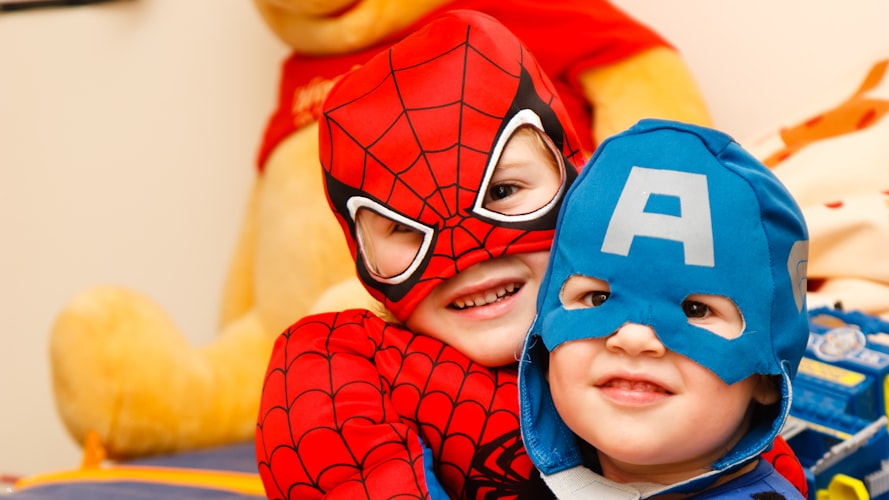Teaching your child to be kind
Posted on July 13 2021

With Franklin D. Roosevelt quote “Human kindness has never weakened the stamina or softened the fiber of a free people. A nation does not have to be cruel to be tough.” Let's begin how we can teach our children the importance of being kind in today’s scenario.

© Unsplash
We as parents/caregivers always tend to teach our little ones about the importance of helping others . We always tell our kids to “be nice” or “play nicely” or “be kind to your brother/sister” and many of us would agree that we want to raise kind and empathetic children in this world where violence and hatred are accepted. But, the question is how do we do that? Kindness is something that can only be learned when experienced, which is why we need to start at home. The way we speak and behave at home is very likely to be mirrored by our child and shape their behaviour. We are their role models. Even a Study at the National Institute of Mental Health found that children tend to imitate what they see, be it television, family members or books.
It's obvious that we can’t always protect our children from everything but a little discussion can go a long way. Also, inculcating values of kindness, empathy and care can help in boosting a child’s self esteem and confidence in the long run. All the more reason to emphasize on it right? And as the saying goes, what we sow is well...what we reap. So, how do we teach our kids to be kind? In our experience as parents, here are a few tips for you:
Stories
© Unsplash
Share stories or choose to read books that bring out the message to be kind like, ‘Little Blue Truck’ by Alice Schertle, ‘You Me and Empathy’ by Jayneen Sanders, ‘If You Plant a Seed’ by Kadir Nelson, etc. Stories have a high influence on our little ones. They create a whole new world of imagination and can be used as a means of indirect teaching. Who knew bedtime stories could pave the way?
Compliments and kind words
© Unsplash
Encourage your kids to compliment another person or use kind words. You can even compliment your spouse or other family members in front of them “Mommy looks beautiful today right?” “What do you say when grandma brings you sweets?”
Teamwork
© Unsplash
Inculcate the value of teamwork in them for example, urge them to help their friend clean up after a playdate or do some fun activities with them like painting or even baking cookies or helping dads picking up groceries from the car. Small but strong steps!
Reward
© Unsplash
Reward your child for every act of kindness they do, be it at home or outside. This will help them realise that doing good deeds results in good things happening to them.
Chores
© Unsplash
Assign a few chores to your children like cleaning up after a meal or picking up their toys after playing or making their bed or setting up the dinner table . This will help them understand that a certain amount of helping is necessary and required just because it is a good thing to do. Later, they can be rewarded for every task they complete but don’t go overboard.
Encourage emotions
© Unsplash
Encourage your children to help and be supportive of others. For example, urge them to go and talk to their friends if they’re upset.
Encourage your kids to always speak up and never to bottle up their feelings. Expressing your true emotions is always good whether it be happy or sad.
Empathy
© Unsplash
Learning empathy takes time. It requires a lot of real life applications from parents and others who spend time with your children. Since children tend to mirror their parents, the parents become the primary examples and therefore, need to start practicing themselves through their language, actions and behavior.
Using pictures of emotions and asking your child to identify those emotions could also help.
Apologizing
© Unsplash
Teaching children to say sorry when they have made a mistake is very important. Apologizing does not make a person any less, in fact more!. Learning to apologize when wrong will make your child more considerate of others feelings and understand emotions better.
Respect mother nature
© Unsplash
Teaching kids to respect mother nature and care for it is also crucial since it is their responsibility as well to protect the environment they are going to grow up in. But, how do you teach that? Small steps could help, like telling them not to litter, picking up a wrapper found on the street and throwing it in the bin, taking them to clean up drives, recycling old bottles and newspapers. Cleaning up a mess they didn’t make helps them feel good and proud of themselves.
Children at early ages are excited, curious and energetic most of the time. They love helping their mommies in whatever work they’re doing and simply want to be a part of everything. We need to pay attention and nurture this trait so that it becomes a habit since this might be the first act of kindness our kid portrays without realizing it. Children are not born ‘good’ or ‘bad’ but they do require nurturing and guidance. Of course, kindness comes from within but, if the child has never seen acts of kindness at home or around them, then we cannot expect them to grow into one in the future. Therefore, it is our responsibility as parents/caregivers to set a good example for them and never let the act of kindness our child portrays go unnoticed, be it small or big.









